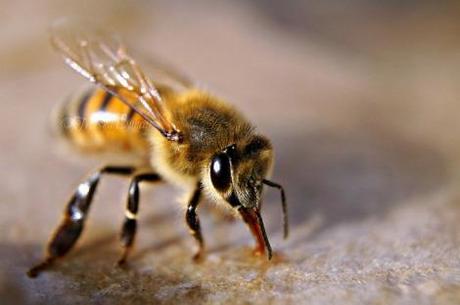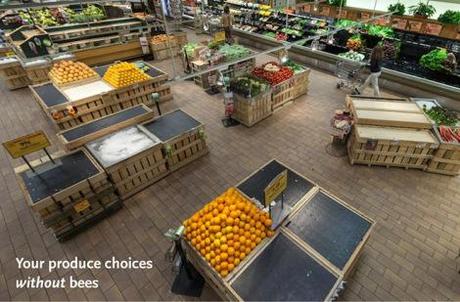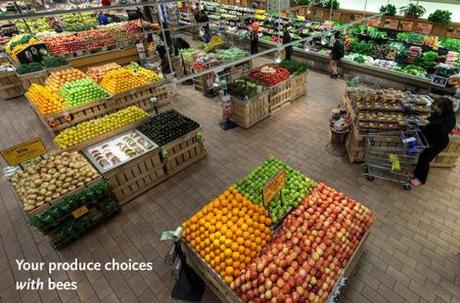
If you love apples, carrots, lemons or watermelon, bad news, because these foods might just become harder to find in the grocery stores.
To raise awareness of the importance of bees to agriculture and to the food system, Whole Foods just started the “Share the Buzz” campaign, a joint project where the Whole Foods Market store in University Heights Marketplace in Providence, Rhode Island temporarily removed the fruits and vegetables that are dependent on bees to illustrate what would happen if the bee population died off.
The store removed 237 out of 453 products, this number represents 52% of the products in the department.
Clearly the “Beepocalypse“ is happening stronger than we imagined it would, as the Beekeepers Association officially stated said that more than a third of colonies died in England and in America 31.1% of their colonies this past winter.
Researchers have said an industry practice of feeding bees corn syrup may spur colony collapse disorder, which could affect the $30 billion crop industry dependent on bee pollination.
The European Union recently voted to ban pesticides containing neonicotinoids, but the United States, in bed with companies like Bayer that manufacture the pesticides, continues to permit their sale.
But there are a small handful of beekeepers throughout the region, from Israel to Lebanon and Turkey who continue to create safe habitat for bees.
Like most things in nature, bees don’t operate in a vacuum and nor do we, so let’s keep spreading the buzz, our future depends on it.



